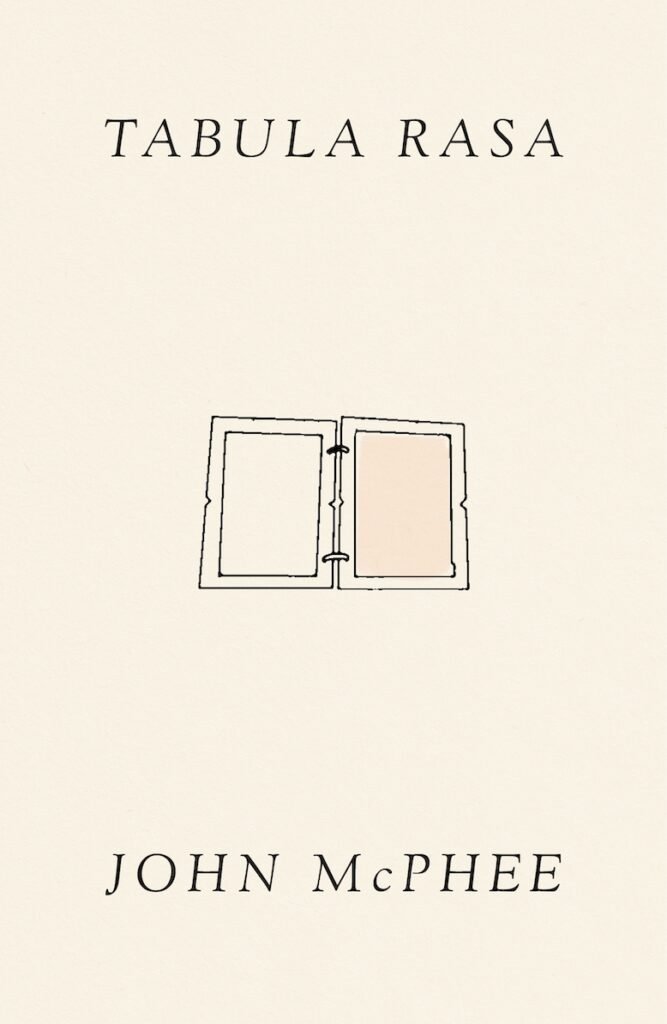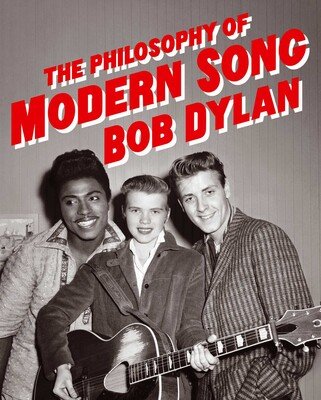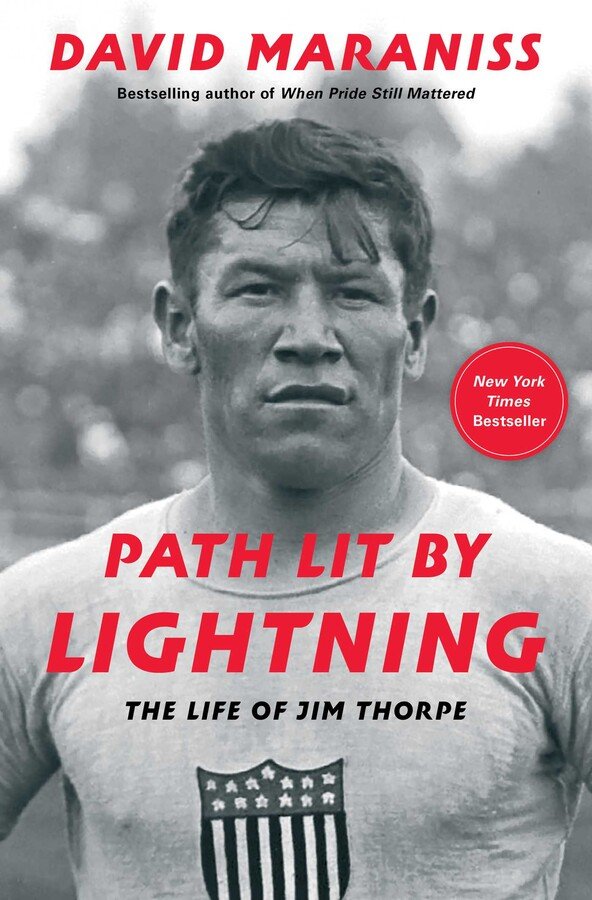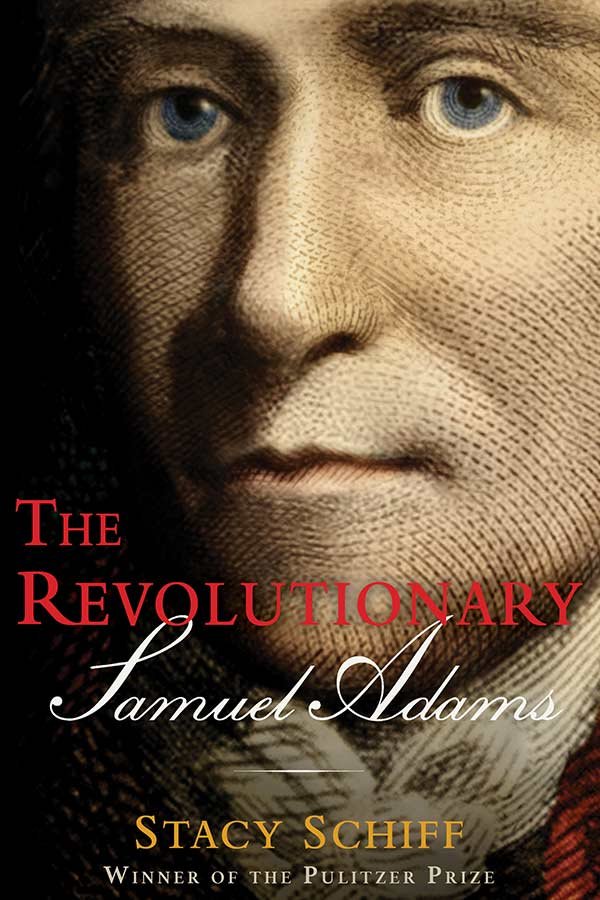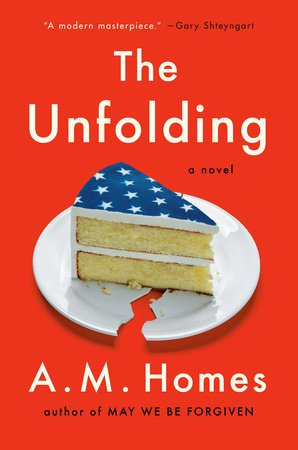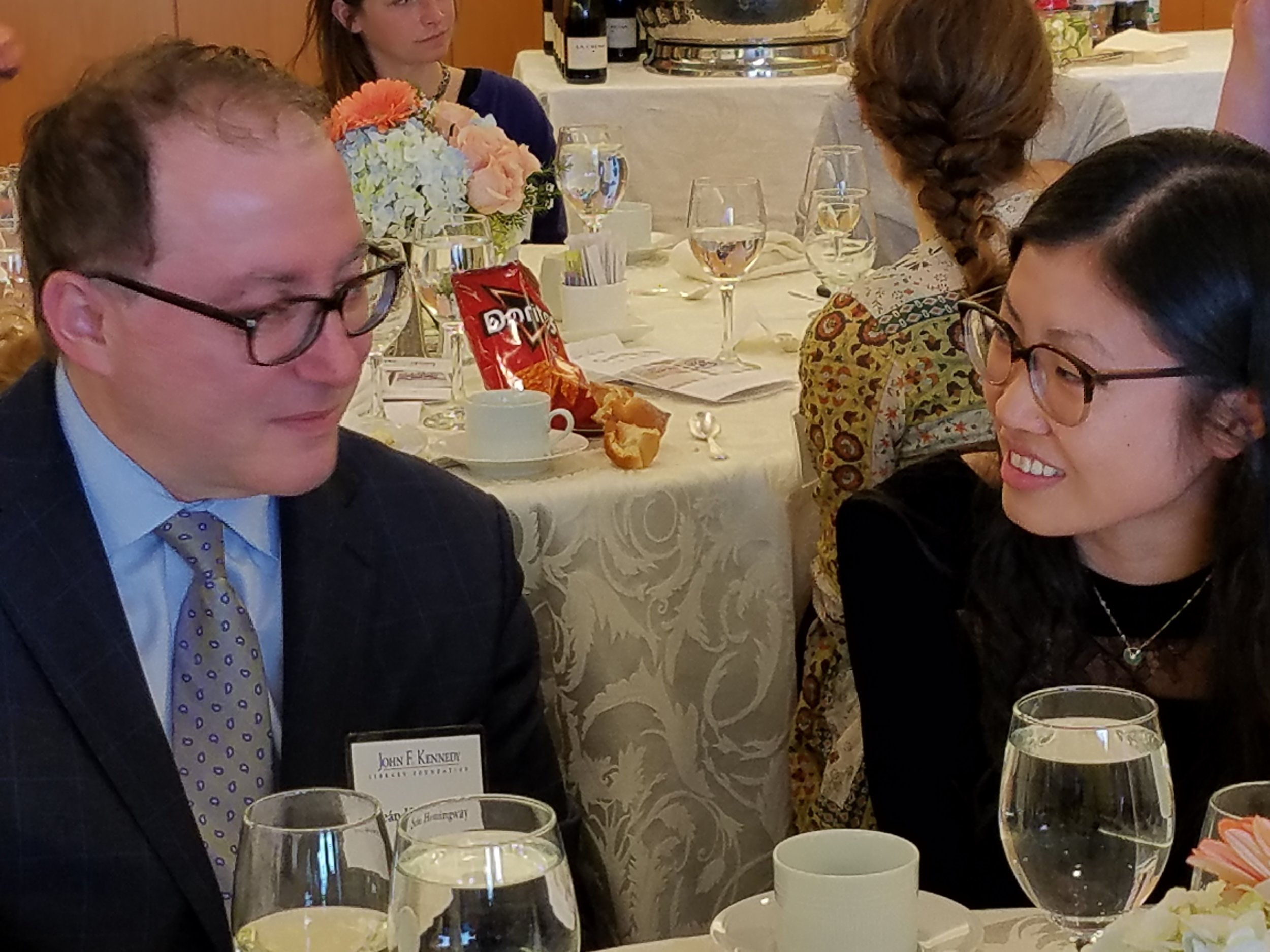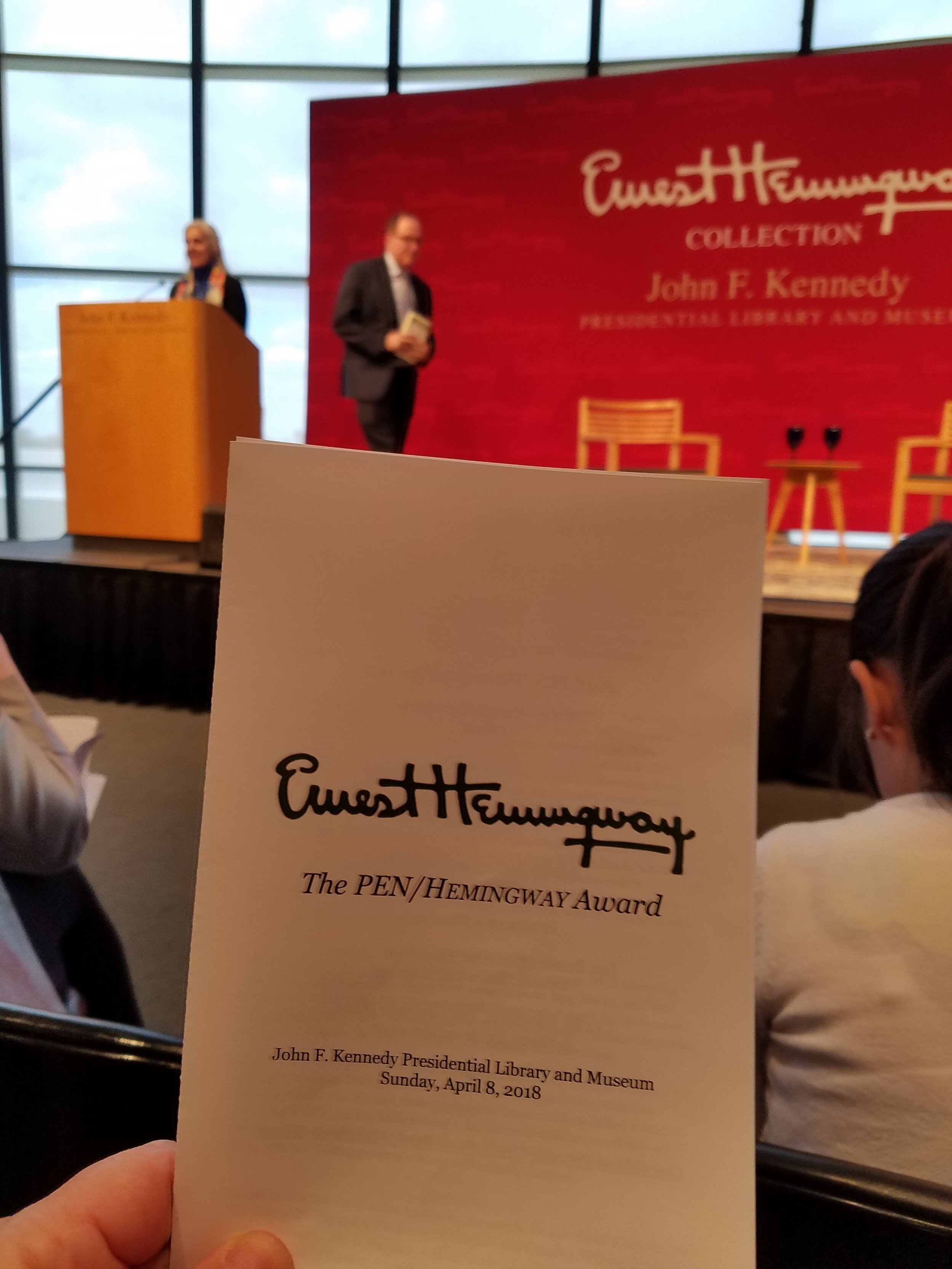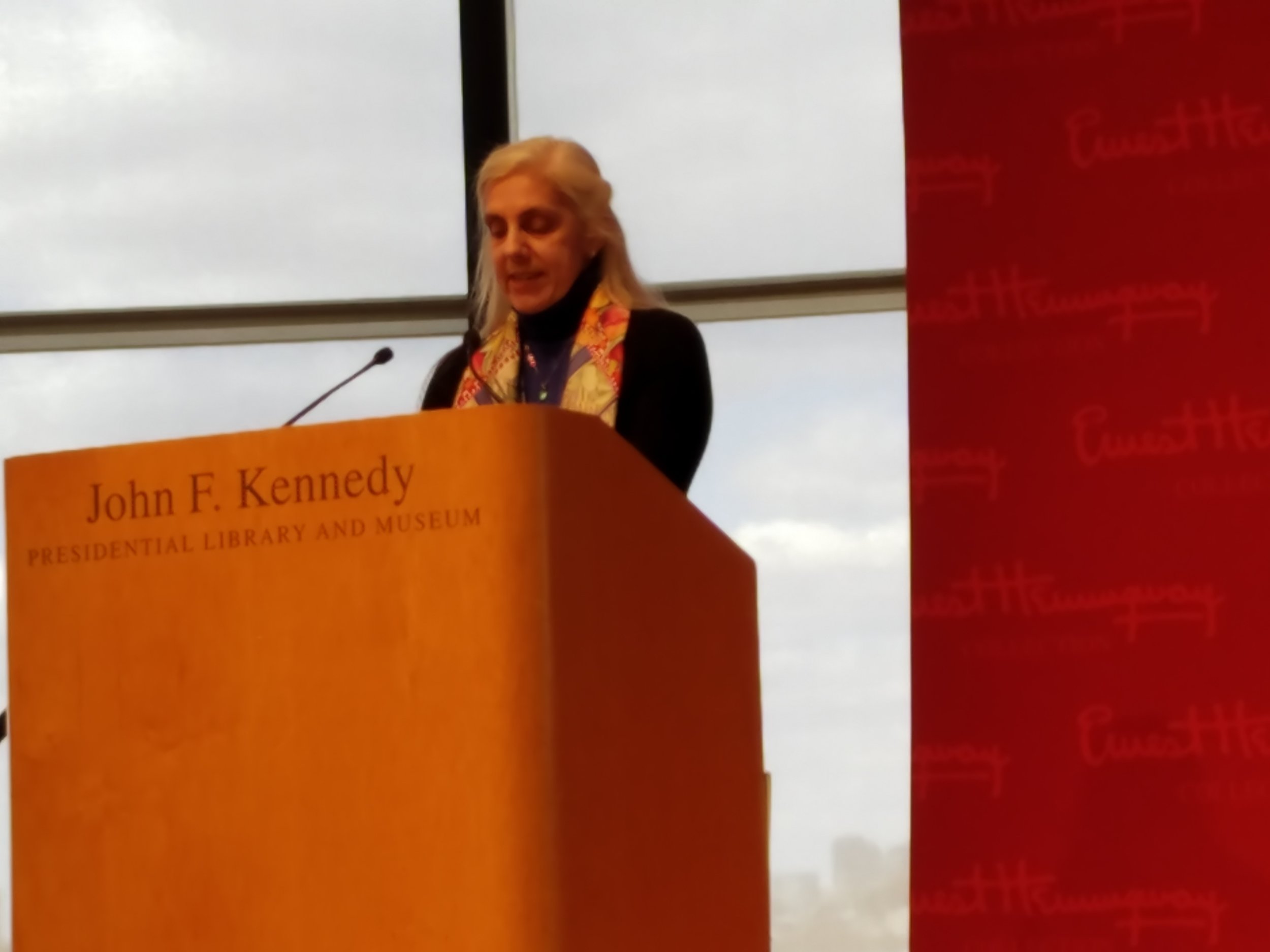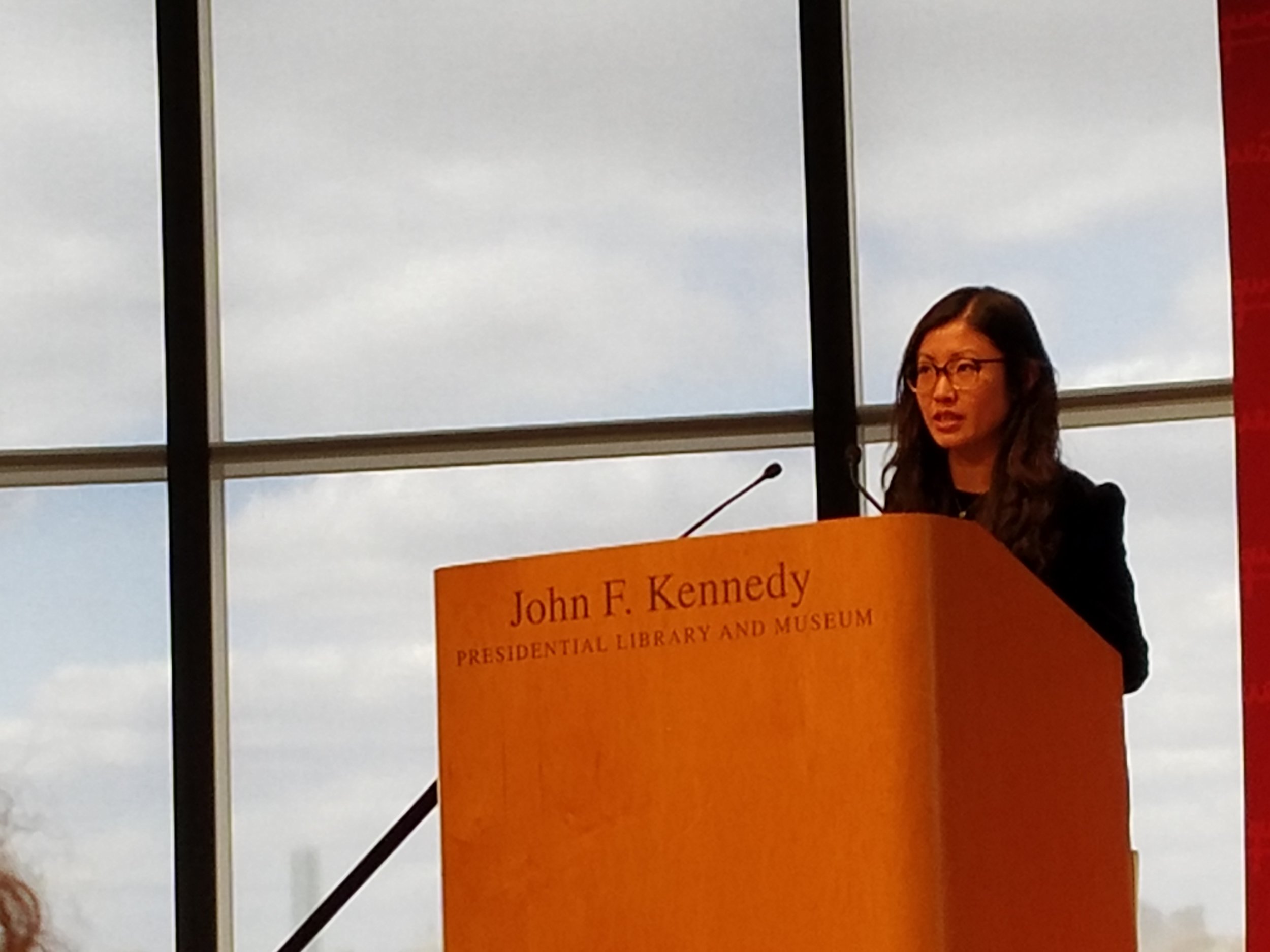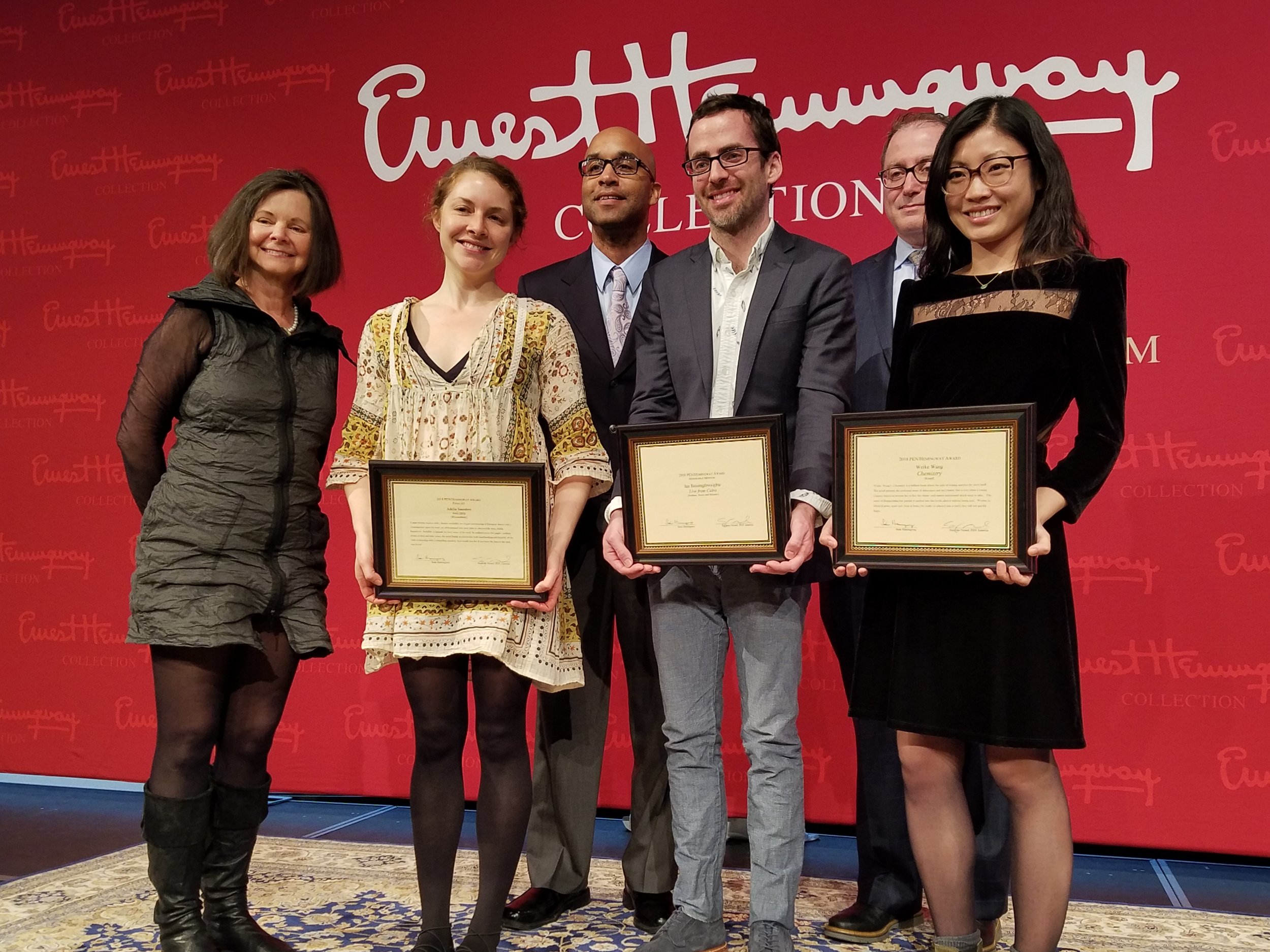I was saddened to learn of the recent deaths of two important New Mexico writers, N. Scott Momaday and Stanley Crawford. I never had the chance to meet Momaday though I certainly knew of his legacy as a voice of Native American culture. I did intersect with Crawford years ago and wrote about one of his New Mexico books. I’d only recently begun traveling to the Southwest and getting a handle on the interwoven cultures of the “Land of Enchantment.” Crawford’s Mayordomo was an enlightening guide to the complications of village life. This first appeared in the Kansas City Star in 1988.
books
From the Archives: Calvin Trillin Three Ways
One of Kansas City’s favorite literary native sons is coming back to town on a book tour soon. He’s touting a new collection of some of his classic magazine journalism, including landmark reporting on the Civil Rights movement of the early 1960s. It was some years later when Trillin’s “American Journal” reports began catching my eye in The New Yorker, and then a decade or so more when I began writing about Trillin during my days as Book Review Editor of The Kansas City Star.
I’ve dug deep into the files to unearth one of those book related stories, which included an interview in Trillin’s Greenwich Village pad.
Twice in the 2000s I managed to accompany Trillin on food tours of his beloved lower Manhattan, which turned me on to some of the more interesting corners of the village and Chinatown.
For now, I’m posting jpeg clippings. Hope that works for all.
Now, a food tour, 2005. My syndicated piece published in the Honolulu newspaper.
Seven years later, 2012, mostly new places, but some old favorites.
TABULA RASA, Volume 1, by John McPhee (Farrar, Straus and Giroux.
Me and Johnny McPhee: A Book Review, etc.
By STEVE PAUL
(c) 2023
Something like almost 50 years ago, I was in Boston (actually, Newton) and staying in the third-floor guest room in a friend’s family’s Victorian house. I had some time to myself, and found on a table next to an easy chair a book I knew nothing about. It was called Oranges. The author was John McPhee, whom I had not yet had the pleasure of reading. I opened it. It was about oranges! And, strangely, seductively, on the very first page, McPhee performs a sequence of citric facts in a narrative dance that became instantly mesmerizing. I read the whole damn thing that weekend and became something of a McPhee disciple.
Years later, in the occasional class or workshop I led on non-fiction writing, I used the first chapter of Oranges as an example of the literature of fact. Some younger students didn’t get it, but maybe the problem was they didn’t get me or my class either.
A few years after reading Oranges, while early in my career as a daily journalist, I thought I ought to polish my resumé and, rather foolishly, enrolled in graduate school. In economics. The university department emphasized a discipline of social thought rather than mere numbers, and I’d enjoyed those studies as an undergrad. Bad move. When I pitched a paper proposal on an environmental issue relating to Alaska’s Tongass National Forest, the professor wanted to know what my sources were going to be. Well, there’s this great book about Alaska and the environment, Coming into the Country, by John McPhee (1976). Well, no, I was told; that’s just journalism and not good enough for graduate school. I made a feeble effort to gather some proper economic data. Then, essentially, I gave up and never finished the paper. Or graduate school.
As a journalist, my admiration for McPhee extended to a magazine project I organized—as an editor, not a writer—which borrowed from McPhee’s Encounters with the Archdruid (1971). One part of his story involved a rafting trip down the Colorado River alongside a federal land agency official and an outspoken environmentalist. The framing of McPhee’s three-part book made it a quasi-biography of David Brower, who would go on to prominently [found?] lead the Sierra Club. In our version of the story, we sent a reporter and photographer down the Missouri River for three days along with an environmentalist and an official of the Army Corps of Engineers. The two sides often clashed over river and channel management and the preservation of wild lands and natural eco-systems, and we hoped to capture conversations about some of those issues while boating down the Big Muddy. One of my principal roles on this journey was to transport the river travelers by van in between stretches on the river. All of us camped on a mid-river sandbar one night, and I recall waking early and watching the enveloping morning fog slowly dissipate.
In recent decades, while still working in daily journalism, I’ve referred to my extra-curricular activities in Hemingway studies as my own private graduate school. My self-directed program suits me just fine. If I suffer the consequences of not having the proper credentials or training in the research and writing I do, then so be it. I’ve raised the private grad school bar even higher following my newspaper career by completing two literary biographies and recklessly rolling into a third. And, as a longtime book critic and a lifelong reader, I continue to spend each and every day among books and at a keyboard.
I know that’s a long ramble toward mentioning my delight as I was reading John McPhee’s new book, Tabula Rasa. It’s a memoir of sorts and a book about writing and not writing. It offers a collection of brief, miscellaneous pieces reflecting dives into McPhee’s old files to recount how and why a particular story idea didn’t pan out. Or did. Deep into the short book, he writes about the origins of Oranges. He’d noticed an orange-squeezing machine at Penn Station, and one question led to another. Then he dropped into the office of William Shawn, the editor of The New Yorker, where McPhee at the time was still pitching ideas on contract while teaching and hoping to become a staff writer. One idea or another failed to spark Shawn’s interest. Sometimes, McPhee realized, Shawn might have been protecting the turf of another New Yorker scribe. Then McPhee offered one word. “Oranges.” And he got Shawn’s classic green light: “Yes. Oh, my, yes.”
McPhee’s Tabula Rasa is engaging, charming at times, surprising, humorous, typically masterful and typically dense with detail—the annals of Princeton, New Jersey, for example—that might not appeal to every reader. Still, he manages to turn some of the raw driftwood into intriguing sculpture. He recalls, for instance, how he once thought about exploring one or more of the dozens of towns named Princeton across the nation. Ultimately he dropped the idea as the equivalent of the uninspired journalism practice of anniversary stories, or “of wilderness camping by Jeep Cherokee, of psychoanalyzing the Mummers Parade.”
We learn about the Leaning Tower of Pisa, the monkish pharmalinguists at drug companies who invent unintelligible names for generics, a Hemingway aficionado who happened to be a mediocre journalist he once spied around the bull run at Pamplona, and how certain travels and failed projects may have influenced McPhee’s two younger daughters, both of whom became writers.
The book made me want to go back to some early McPhee pieces—especially one about Kentucky bourbon—that eluded my attention or a place on my book shelves. And it reminded me to marvel again at the depth of McPhee’s reportorial memory and achievements in science and history; at the curiosity that takes readers into the lives of interesting people we might not otherwise meet; and at his ebullient mastery of language and the craft of story.
Recent Readings: Fiction, Biography and Bob
I had the pleasure of appearing again on Steve Kraske’s “Up-to-Date” radio show on KCUR-FM to add my recommendations for fall reading and holiday book buying. The time was tight, so I only got a chance to talk about three books—A.M. Homes’ new novel and biographies by Stacy Schiff and David Maraniss; a blurb about the fourth recommendation, Bob Dylan’s Philosophy of Modern Song, appears on the show’s website:
Here’s the text, published on the KCUR site:
The Unfolding, by A.M. Homes (Viking). Fiction: This serio-comic novel rather sleekly and smartly encapsulates our recent years of political anxiety and divisions. The setting extends from election day 2008 to the presidential inauguration of Barack Obama two and a half months later. Its principal characters include 18-year-old Meghan Hitchens, her politically connected and archly conservative father, known as the Big Guy, and her mother Charlotte. Even as the family confronts its own secrets and disintegration, the weight of history and conflicting notions of the “American dream” propel the reader through a closely observed scenario blending a young woman’s personal awakenings and the makings of political truths and power. A.M. Homes has a sharp eye, a wicked wit, and a highly tuned ear, resulting in a fast-paced novel rich with cultural, emotional, and political insights.
The Revolutionary: Samuel Adams, by Stacy Schiff (Little, Brown). Biography. One of our finest biographers takes us to the American Revolution through the complicated life of a Boston rabble-rouser. Political activist, opinion leader, instigator of the colonial Congress, and sly architect of the march toward independence from the British “mother country,” Adams was fearless, driven, and ultimately controversial. Schiff brings a savvy and scintillating sense of story to the proceedings, making for a crisp read. Her book illustrates how the founding turmoil and lessons of distant American history resonate even today.
Path Lit by Lightning: The Life of Jim Thorpe, by David Maraniss (Simon & Schuster). Biography. He was the world’s greatest athlete. Football player. Track star. Olympic gold medalist (with an asterisk). Even a pro baseball player, though of uneven skills. But all of that was complicated—disturbingly and tragically—by Jim Thorpe’s identity as an “Indian,” a Native American with roots in the Sac and Fox tribe of Oklahoma. The story of Jim Thorpe, as Maraniss’s clear-eyed and supremely detailed biography reveals, is a story of persistence, survival, love, loss, and the juggernaut of sports, but also a story of how myths are made and how white America manipulated people and denied dignity and honor to “first Americans.”
The Philosophy of Modern Song, by Bob Dylan (Simon & Schuster). Non-fiction/essays. Bob Dylan, the Nobel Prize laureate, is still recording new music and touring in his 80s. Now he has gathered a series of essays on music and culture into an odd yet revealing, occasionally controversial, and ultimately entertaining book. Reflecting the kind of eager and engaging riffing he brought to his “Theme Time Radio Hour” series, Dylan writes about 66 distinct songs representing American pop culture from his youth and middle years. From stars like Little Richard, Ricky Nelson and Frank Sinatra to relative unknowns such as John Trudell, a Native American songwriter and activist. As it becomes clear, these are not necessarily a playlist of his favorite songs, but entry points into the stream of history. Dylan meditates on justice, fame, race, and other topics and presents the kind of intellectual pinballing we’ve come to expect from this pop-culture survivor wholly deserving of his status as sage, poet, and court jester.
From the Archives: A Mamet Discovery Prompts Unearthing This Piece About Hemingway and TV Writing
While researching another project recently at the Harry Ransom Center, on the campus of the University of Texas in Austin, I followed a digression into Hemingway territory and learned something I’d never encountered before. The playwright David Mamet (right) had once set out to write a screenplay based on Across the River and Into the Trees, one of Hemingway’s most problematic novels. Problematic because most critics hold it up as one of Hemingway’s worst. That may or may not be true, but despite its flaws, the book, like several of Hemingway’s lesser works, does serve up some elegant writing here and there. So, Across the River, published in 1950, is at least approachable on a prose, or sentence-by-sentence, level.
Mamet recognized the novel’s reputation but once noted in an interview that great plays often lead to lousy movies and perhaps the reverse may have been true for a bad book. I’m not sure his logic on paper was quite that clear, but I think that was what he was trying to say.
Mamet has often been creatively compared to Hemingway, which, in that same interview (with Playboy, in 1995) he deflected: It would be a “heavy, impossible burden. You know, you can’t play Stanley Kowalski without being compared to Marlon Brando – even by people who never saw Marlon Brando in the movie, let alone on stage. He revolutionized that role and the American notion of what it meant to act. The same is true of Hemingway and writing.”
That said, the discovery of these Mamet notes sent me back to a newspaper piece I wrote – yikes, sixteen years ago -- that connected some dots between Mamet and Hemingway through the craft of television writing. That piece also made a nod to the likes of Aaron Sorkin and Amy Sherman-Palladino, the creator of a TV series of the day called “Gilmore Girls” and now the creative spirit behind one of the most popular and lauded new streaming series, “The Marvelous Mrs. Maisel” (on Amazon Prime). Again, Hemingway. I watched a few more episodes of “Mrs. Maisel” the other day, which gave me further impetus to repost this piece.
The following article first appeared in The Kansas City Star in November 2002.
Motor mouths: Smart and savvy TV writers figure it out: Papa knew best
“Wall Street Journal says people are talking really fast on
television.”
“You don't say.”
“No, really. Especially on `West Wing.' “
“Smart show.”
“That's right. Mostly written by a guy named Aaron Sorkin.”
“All that politics _”
“Ripped from the headlines!”
“And real-life drama.”
“It's nice that Bartlet and his wife are getting closer.”
“Illness will do that.”
“I suppose. But it's about -- “
“Power and powerlessness.”
”Good way to put it, but I've been thinking about this TV thing for a
long time. And one thing the Journal didn't mention -- “
“Only one?”
“Well, a few things, but one important one was the real source of that
dialogue.”
“Yeah?”
“Straight out of Hemingway.”
“Howzat?”
“Sun.”
“Sun?
“The Sun Also Rises. All that Paris banter. All those young hipsters.”
“All that drinking -- “
“That, too, but I first noticed this a few years ago on another show
Sorkin did -- `Sports Night.' “
“That ESPN thing.”
“Something like that. But it was great. Behind the scenes at a sports
talk show that had virtually nothing to do with --”
“Sports.”
“Yeah. It was all about the people. And they talked fast, and they
talked on top of each other and they completed one another's --”
“Sentences.”
“You've got it. And for some reason that's why I put two and two
together.”
“And came up with Hemingway.”
“Listen to this. It's when Jake Barnes invites a passing woman to sit
down and have a drink. He's the narrator:
“What's the matter?” she asked. “Going on a party?”
“Sure. Aren't you?”
“I don't know. You never know in this town.”
“Don't you like Paris?”
“No.”
“Why don't you go somewhere else?”
“Isn't anywhere else.”
“You're happy, all right.”
“Happy, hell!”
“I see what you're talking about.”
“Things happen fast on TV comedies, and even some dramas, and this
article I read said it had to do with cramming lots of scenes in a show to
keep people laughing. Wears some people out. ‘Lucy’ was funny. But
‘Seinfeld’ was faster. Just like those old screwball comedies from way back
when.”
“Yeh, yeh, yeh.”
“I might add that ‘Frasier’ is just as clever, more urbane, but
slower.”
“It takes time to make a latte.”
“And you know `Seinfeld,' that show about nothing.”
“Yada yada yada.”
“Exactly. Know where that comes from?”
“I'm getting a feeling --”
“Yep. ‘A Clean Well-Lighted Place.’ Seinfeld did yada yada. Hemingway
did nada nada. Read it and weep.”
“Will do.”
“These really good TV guys -- Sorkin, David Chase --”
“ ‘Sopranos.’ “
“Yup. And Matt Groening _”
“ ‘Simpsons.’ “
“Roger.”
“Homer?"
“No. Roger. As in `Roger that.' You're right. ‘Simpsons.’ But what I was
trying to say -- “
“Before I interrupted --"
“Was that the best of this stuff seems to be so aware of things. Aware
of the world. Aware of pop culture.”
”Uh huh.”
“I mean, some of these guys even love books.”
“I'll never forget that Jack London episode of ‘Northern Exposure.’ “
“Brilliant. That's what I mean. Or Amy Sherman-Palladino.”
“Who?”
“She writes `Gilmore Girls.' There's some media-savvy dialogue, for you,
even though it feels a little forced.”
“She's no Hemingway, you mean.”
”Well, I don't think I'm too far out on a literary limb with that
theory. Surely Sorkin read `Hills Like White Elephants.' “
“Who hasn't?”
“One thing you hear a lot is wordplay. Repetition. You accent something
by repeating it two or three or more times.”
“Repetition.”
“It's like ping-pong words. Not sing-song to put you to sleep. Ping-pong to
keep you alert.”
“Back and forth you mean?”
“Words ping-ponging, or pinballing. Like one time on `Gilmore Girls'
Rory and a friend were riffing on the word ‘wing-it.’ They didn't know they
were riffing, they were just saying what the writers wrote. But ‘wing-it’ as
a compound verb and an adjective, meaning just the opposite of ‘Zagat,’
meaning you'd look it up in the restaurant guide rather than wing-it. The
friend was having a date and she was worried about not looking
at Zagat and they'd be forced to wing-it. Zagat. Wing-it.”
“Wow.”
“It's like action poetry.”
“Poetry? On television?”
“TV is literature, you know. I mean look at ‘Sports Night.’ “
“It's a shame they killed it.”
“Yeah, that really torqued my chili.”
“Peter Krause was great.
“Just like he is on `Six Feet Under.' And now one of those `Sports
Night' guys is on ‘West Wing.’ “
“The guy with glasses.”
“But Felicity What's-Her-Name -- she played the lead character, the
talk-show producer -- was married to William H. Macy and they were great,
too.”
“Great character -- Macy. The ratings consultant.”
“Huffman. Felicity Huffman. And they're theater people.”
“Really?”
“They do Mamet. I mean they're friends with Mamet.”
“Mamet?”
“The F-word guy. Plays. Movies.”
“Yeah, I know, I know. But did you just say, ‘It really torqued my
chili’?”
“Did.”
“Where'd that come from?”
”People talk that way.”
“C'mon --”
“No, they do. The beauty of language. I love it. ‘Torqued my chili.’
Some guy from Oklahoma says it. I heard it at a diner.”
“A diner?”
“You know, like in `The Killers.' “
“Ernie again?”
“Short story.”
“Kind of like television.”
“Except without the ads.”
“Another reason they talk fast, right?”
“Yeah. To squeeze in more -- “
“Commercials."
On the PEN/Hemingway beat: An Interview With Weike Wang
I wrote this account of the 2018 PEN/Hemingway Award event for the newsletter of the International Hemingway Society. Here it is, including a brief interview with Weike Wing, author of the award-winning novel, Chemistry.
By STEVE PAUL
This was a transitional year for the annual PEN/Hemingway literary awards, which the Ernest Hemingway Foundation has co-sponsored for more than four decades. Not long before the April 8 awards event in Boston, our longtime co-sponsor, the New England PEN organization, ceded administration of the program to its parent organization, PEN America. The New York-based advocacy group oversees a long lineup of annual literary awards.
Without the presence of New England PEN and its own regional literary awards, this year’s event at the John F. Kennedy Presidential Library and Museum was somewhat smaller than usual but wholly focused on the Hemingway award, which honors a first book of fiction. Seán Hemingway (pictured above with Weike Wang), standing in for his uncle Patrick, oversaw the proceedings, in which the 43rd annual PEN/Hemingway award went to Weike Wang, author of the novel Chemistry. (More on Wang and her book below.)
The audience heard from awards judge Geraldine Brooks and Suzanne Nossel, CEO of PEN America, which is operating in overdrive, she said, during a “crisis for expression in our own country.” Ricardo Cortez Cruz, author of the novel Straight Outta Compton and professor of English and creative writing at Illinois State University, gave a stirring keynote about Hemingway and “the joy and optimism that comes with knowing that writing can change the world.”
Dr. Hilary K. Justice (pictured at the lectern), specialist at the JFK’s Hemingway Collection, opened the proceedings with a smart and lyrical essay based in part on her call for the Hemingway community to identify their favorite Papa sentences.
The PEN/Hemingway program also highlighted two finalists: Lisa Ko, for The Leavers, and Adelia Saunders, author of Indelible. Honorable mentions went to Ian Bassingthwaite for Live from Cairo, and Curtis Dawkins, author of the prison novel The Graybar Hotel.
Wang receives $25,000 and residencies at the University of Idaho and the Ucross Foundation in Wyoming. The runners-up receive smaller amounts. Along with our Ernest Hemingway Foundation and PEN America, sponsors of the program include the Hemingway family, the JFK Presidential Library and Museum and its associated support organizations.
Weike Wang’s Chemistry is a briskly moving short novel about a young woman, daughter of Chinese immigrants, who is struggling with her American identity, her family and boyfriend relationships, and with the doctoral chemistry lab that threatens to define her future. A few days after the ceremony in Boston, I got in touch to command her attention for a brief email interview. It appears here with only slight revisions for clarity.
Q. First, can you give me a recap of your path towards writing? You apparently were in another field (chemistry? public health?), so when, how, and why did you veer into fiction?
A. I was undergrad chem and English. I was also premed. Then the latter didn't quite work out and I moved into grad school for cancer epidemiology. I have always been writing fiction, but I don't think it is necessarily a profession you go into as it is one you fall into. When I finished the MFA and wrote this novel, I had no idea any of this would happen. I had hoped, but never actually thought it would. I can sometimes be self destructively practical. Had the novel not worked out, my plan was then to find a job in epi and move on from writing.
Q. There are no right answers here, but in your workshopping and MFA did you develop any ideas or relationship, pro or con, with Hemingway? It's always interesting, because very few PEN/Hemingway winners -- the books, I mean -- feel as if they've been influenced by his work.
A. That is true, but I did read the story “Hills Like White Elephants” during my MFA. I came to Hemingway's work fairly late, in college and later I would say. But I have a good relationship with Hemingway's work. I learned a great deal from him in terms of dialogue (especially from the above story) and shaping a piece of fiction to mimic something in real life yet to still be inherently fiction. What I love about that first story I read of his is the explosiveness both explicit and subversive.
Q. Your reading on Sunday really heightened the humor that seasons your novel. I've been thinking about that and wonder whether humor is a concerted strategy or comes out of your natural authorial voice or emerges from your vision of the narrator's character?
A. Voice, I believe. I don't think I could write anything without some ounce of humor. You cannot have dark without light. Humor has been my natural way of coping with growing up. But I do think it works well in writing and I take a leaf of that ability from teachers like Amy Hempel and Sigrid Nunez.
Q. Sorry for the obvious question, but does your narrator's experience reflect elements of your own life or is she wholly invented? This, of course, is a Hemingway issue, given that readers always seem to expect that he was writing about his own life.
A. Ah. When I met Seán at the lunch, he told me he had read some earlier drafts of “Hills Like White Elephants” and the very first draft read more like a recorded conversation and was probably a recorded conversation between Hemingway and Hadley. Then the shaping of the work happened and now we have this brilliant story that has no bearing with the original conversation but used it as a springboard. That is how I feel about this book. I took a lot of elements from my life. The science and PhD world is as part of me as football and baseball lingo is to my husband. The longer I write the more I see that transforming the prose is a large part of being the writer. Much of that transformation happens in revision, hence why revision is so paramount.
Q. The structure of "Chemistry" seems something like an orchestration of atomic particles and really benefits from its non-linear but ultimately forward motion. How did you determine to write the novel that way?
A. I think the non-linear narration came from my inability to write a straight story from event to event. I favor the collage structure. I think it gives the reader and writer a more immersive experience. I also found something clunky about going from chapter to chapter, putting in a “cliff hanger,” finding the “hook.” Much of the book is also about language and the flow of language, so I wanted it to move fairly seamlessly.
A. What's next for you? Also, are you still teaching?
Q. More books! Hopefully. I am working on a second novel and stories. I'm not teaching this semester but I will be next semester at Barnard and UPenn. Teaching is pretty fun. Students are funny, in a good way. But also I guess in a funny way.
Hemingway Society member Steve Paul is author of Hemingway at Eighteen: The Pivotal Year That Launched an American Legend (Chicago Review Press, 2017).







